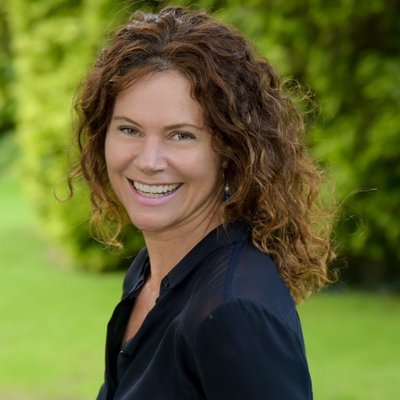
Elisa Peter. Photo Credit: Publish What You Pay
Elisa Peter has lived and worked in eight countries driving international policy processes in the field of transparency, civic participation, accountability, sustainable development, climate change, human rights and peace/security. This includes championing land and environmental rights in an indigenous arctic community and designing and facilitating senior-level political strategies for an eminent group of 12 former Heads of State and Nobel Peace Prize laureates on climate change, peace and human rights.
As the current Executive Director of Publish What You Pay (PWYP), she drives a people-centered agenda for an open and accountable extractive sector. In this interview, Elisa spoke on the realities of the resource curse, the impact of the pandemic on advocating for a more open extractive sector, and the resilience of PWYP activists fighting for justice in natural resource governance –not forgetting her over two-decade-old wisdom in international advocacy.
Earlier in your career, you lived and worked in an indigenous arctic community campaigning for land and environmental rights. How has this experience impacted the work you do?
Yes, I lived in a Sami indigenous community in arctic Sweden for 5 years. Apart from surviving extreme weather conditions, that experience really taught me about the realities of the resource curse. When people think of the resource curse, they often conjure an image of a developing country struggling to effectively realize the potential economic and social development benefits generated by the exploitation of their natural resources. But the curse is also alive and well in high-income countries like Sweden, Canada, the US, Australia – which we regard as well-governed democracies. In Sweden where I lived, coal mining, large-scale hydroelectric projects, and industrial forestry have long devastated the ecosystems of the ancestral territories of the Sami reindeer herders, while generating very few decent jobs or investments in local communities. The coal, the electricity generated by the dams, and the timber were all shipped to far-away consumption markets, leaving destruction of traditional livelihoods and fragile habitats in their wake.
Today, as the Executive Director of PWYP, I work on very similar issues and while it can be discouraging to realize that many of the challenges I encountered while living in the arctic 20 years ago are still the same around the world, I also get inspired every day by the courage, determination, and resilience of PWYP activists fighting for justice.
Why should people care about transparency, accountability, and sustainability in the oil, gas, and mining sector?
Because without transparency, the revenues generated by the sector may flow to the off-shore bank accounts of the powerful elite rather than be used to eradicate poverty and provide basic social services. Without accountability from governments and companies to people – especially those negatively affected by extractives projects – trust will be eroded and conflicts will erupt. And while the environmental sustainability of extracting non-renewable resources has always been questioned, the climate crisis really calls for a rapid phasing out of fossil fuel production. At PWYP, we believe this transition needs to take place in a way that is fair and equitable, especially for those whose livelihoods depend on the sector. We are currently finalizing our global position on the energy transition to articulate how PWYP can contribute to supporting a transparent and sustainable transition rooted in the respect for human rights.

Taking a broader look at the extractive field, what are those recurring factors aiding corruption and how is PWYP addressing this issue using a people-centered approach?
One of the main root causes of corruption in the extractive sector is the sheer amount of money (rent) that the industry generates. Rents are the profits made that exceed that which is economically or socially necessary and are essentially up for grabs by any of the government or private sector players involved. This, combined with a range of other factors such as weak public institutions in a lot of resource-rich countries, opaque ownership of many companies in the extractive sector, the secrecy surrounding many oil and mining deals, and impunity for the perpetrators of corruption, contributes to making the extractive sector one of the industrial sectors most prone to corruption and illicit financial flows.
To address these issues, PWYP promotes a rights-based approach to transparency by promoting public participation in natural resource governance. We believe that when people affected by the negative impacts of extraction take part in decision-making processes about if, when, where, and how extraction takes place, it improves the socio-economic outcomes of these decisions. So, for instance, more and better jobs, robust revenue sharing schemes addressing the most pressing needs of affected communities, less conflicts, social license to operate for the industry, and increased trust between governments and citizens.
As a global movement of over 1000 members, we look to position ourselves to elevate the concerns of those most affected by extraction to at the local, national, and international levels. This global collaboration rooted in local struggles is our superpower.
How has the pandemic impacted the advocacy for a more open extractive sector? What can be done to ensure an open response and open recovery from the pandemic?
As countries went into lockdown one after the other in 2020, oil demand plummeted and extractive companies suffered huge losses. While oil consumption has somewhat recovered this year, the pandemic has contributed to renewed public debate about peak oil and stranded assets – those fossil fuel reserves that are unburnable if we want to limit global temperatures rise under 1.5 degrees Celsius to avoid catastrophic climate change.
The pandemic has also galvanized calls for increased transparency about these stranded assets. Where are they? Who controls them? How much carbon they would emit in the atmosphere if exploited? Which new oil projects are financially viable in the mid and long term, especially in “new producer countries such as Senegal, Tanzania, Lebanon, and Guyana?
Citizens are increasingly skeptical about the societal value of public subsidies to keep fossil fuel companies on a lifeline, especially in rich producer countries like the US, Australia, Canada, Norway, or the UK. These subsidies (including tax incentives, tax exemptions, etc.) remain opaque and PWYP and others are calling for more transparency on their value and impact, especially at a time when public debt is mounting. Is the best use of public funds to keep large multinational companies afloat or to train and recruit nurses and buy PPE in the midst of a pandemic?
From PWYP’s perspective, any open response and open recovery agenda would need to focus on supporting progressive fiscal measures in the extractive sector, disclosure of oil, gas, and mining contracts that are negotiated between governments and companies, beneficial ownership disclosure to address corruption, and putting an end of illicit financial flows and tax havens. Then, the revenues generated by the extractive sector can contribute to addressing poverty and rising inequality rather than enriching a small elite.
Your first job – with A SEED Europe – introduced you to the art of international campaigning and that is still part of what you do today. What dos and don’ts/ tricks/ lessons can you share with starters in this field? What key moves do you wish you knew when you ventured into it?
PWYP launched a global advocacy campaign calling on governments to disclose the contracts they sign with extractive companies a few months ago. It’s called #DiscloseTheDeal. It builds on years of advocacy by PWYP members around the world and we have learned a thing or two about international campaigning.
DO’s include: clarity on the narrative and the change you want to achieve; engagement with those who support and resist that change; clear messages and asks; visibility (a great hashtag can help mobilize people beyond the usual suspects).
DONT’s include getting discouraged if you don’t get the campaign right from the start. It takes a long time to change social and business norms and we all learn as we go. It can be a good idea to break down your ultimate goal into successive milestones to make everyone feel that even if slow, the campaign is progressing step by step and you can celebrate small achievements along the way.
What song would you pick for your personal anthem? and why?
I love the song “Africa” by Selif Keita. The first time I heard it I had never been to Africa. Now that I travel there regularly, I think it really embodies the spirit and energy of people on the continent for me.
Catch up with Elisa on Twitter at @ElisaPeter and get more update on what Publish What You Pay is up to at @PWYPTweets


